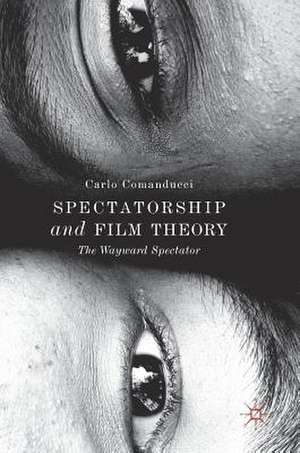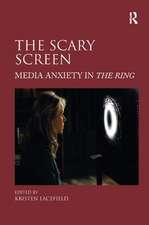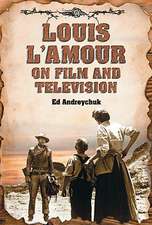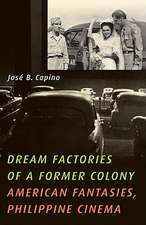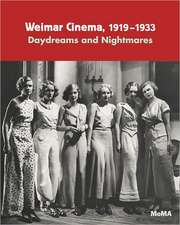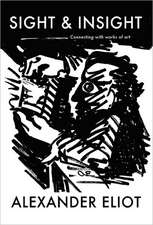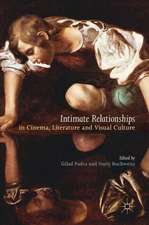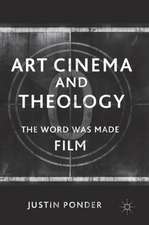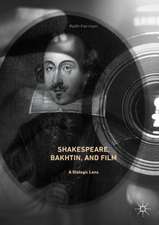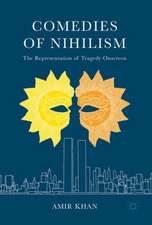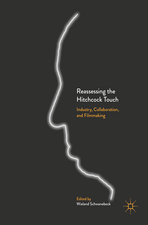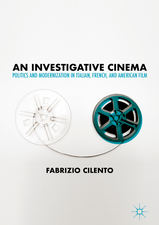Spectatorship and Film Theory: The Wayward Spectator
Autor Carlo Comanduccien Limba Engleză Hardback – 10 sep 2018
| Toate formatele și edițiile | Preț | Express |
|---|---|---|
| Paperback (1) | 381.59 lei 6-8 săpt. | |
| Springer International Publishing – 3 ian 2019 | 381.59 lei 6-8 săpt. | |
| Hardback (1) | 499.12 lei 6-8 săpt. | |
| Springer International Publishing – 10 sep 2018 | 499.12 lei 6-8 săpt. |
Preț: 499.12 lei
Preț vechi: 587.19 lei
-15% Nou
Puncte Express: 749
Preț estimativ în valută:
95.54€ • 103.81$ • 80.30£
95.54€ • 103.81$ • 80.30£
Carte tipărită la comandă
Livrare economică 19 aprilie-03 mai
Preluare comenzi: 021 569.72.76
Specificații
ISBN-13: 9783319967424
ISBN-10: 3319967428
Pagini: 208
Ilustrații: VII, 208 p.
Dimensiuni: 148 x 210 mm
Greutate: 0.41 kg
Ediția:1st ed. 2018
Editura: Springer International Publishing
Colecția Palgrave Macmillan
Locul publicării:Cham, Switzerland
ISBN-10: 3319967428
Pagini: 208
Ilustrații: VII, 208 p.
Dimensiuni: 148 x 210 mm
Greutate: 0.41 kg
Ediția:1st ed. 2018
Editura: Springer International Publishing
Colecția Palgrave Macmillan
Locul publicării:Cham, Switzerland
Cuprins
1. Introduction: Film theory, a divided passion?.- 2. The heteronomy of subjectivity and the spectator’s emancipation.- 3. Everyday film theory.- 4. Situatedness and contingency of film experience.- 5. The process of free association and film as an evocative object.- 6. The indeterminacy of embodiment.- 7. The spectator as a history of encounters.
Notă biografică
Carlo Comanducci teaches at Vistula University, Warsaw, Poland. He writes on cinema and spectatorship, psychoanalytic theory, anarchy and the politics of aesthetics.
Textul de pe ultima copertă
This book interrogates the relation between film spectatorship and film theory in order to criticise some of the disciplinary and authoritarian assumptions of 1970s apparatus theory, without dismissing its core political concerns. Theory, in this perspective, should not be seen as a practice distinct from spectatorship but rather as an integral aspect of the spectator’s gaze. Combining Jacques Rancière’s emancipated spectator with Judith Butler’s queer theory of subjectivity, Spectatorship and Film Theory foregrounds the contingent, embodied and dialogic aspects of our experience of film. Erratic and always a step beyond the grasp of disciplinary discourse, this singular work rejects the notion of the spectator as a fixed position, and instead presents it as a field of tensions—a “wayward” history of encounters.
Caracteristici
Offers a rereading of 1970s psychoanalytic film theory which attempts to overcome some of its traditional limitations without dismissing its core political concerns Foregrounds theory as an internal aspect of everyday spectatorship and as an element of the spectator’s “waywardness” rather than as an instrument for the explanation and normalisation of film experience Contributes to a theory of film experience by arguing for an intimate connection between the theory of spectatorship and a queer understanding of subjectivity Redraws the relation between spectatorship and film theory from the standpoint of Jacques Rancière’s discussion of politics and emancipation, combining it with an alternative understanding of the role of psychoanalysis in film studies
